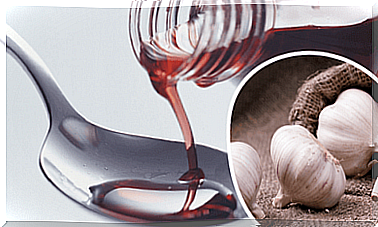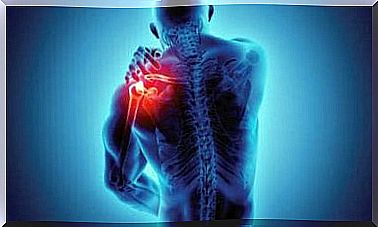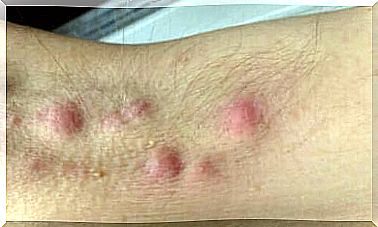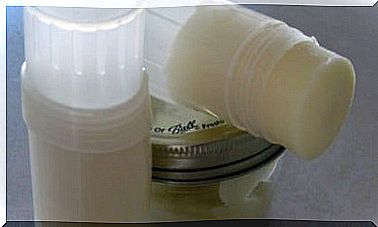The Symptoms And Characteristics Of Aerophagia

Aerophagia results from excessive intake of air in the digestive tract, especially during meals. The term means “eating air.” It is a mild digestive disorder.
However, it often causes a lot of discomfort. Often it is responsible for the release of the upper layer of air, which is commonly known as belching. However, it is important not to confuse it with gastroesophageal reflux, a condition that has similar symptoms.
Aerophagia may be exacerbated in conjunction with other digestive problems, such as dyspepsia, or abdominal swelling. In children, aerophagia is relatively common and is often associated with babies crying a lot.
The causes of aerophagia
Normally, aerophagia is a result of a poor diet. Usually it is related to the excessive consumption of soda, sugary drinks and other foods such as sweets, breadcrumbs and chewing gum.
It can even stem from bad eating habits during your meals, such as eating too quickly. This is because a large amount of air enters the digestive tract.
It can also be the result of anxiety problems, such as stress. Thus, from a pathological perspective, it often occurs in people who do not properly coordinate the functions of swallowing and breathing. This is common in people with anxiety.
Symptoms of Aerophagia

Aerophagia is manifested by a feeling of heaviness in the stomach, a feeling of bloating and other digestive problems. Belching, along with flatulence, is one way to relieve digestive problems.
Symptoms of aerophagia include:
- Abdominal swelling. This is the result of the excess gas, causing the abdomen to swell. However, it is easy to confuse this with other symptoms.
- Stomach ache. Sometimes the pain moves to the lower part of the sternum by pushing air into both the stomach and heart. Then it is possible to confuse the pain with another pain that causes angina.
- bowel sounds. Some conditions cause symptoms similar to those of aerophagia. Such is the case with gas that leads to bowel sounds.
- Belching and non-smelly flatulence.
The diagnosis of aerophagia
Experts diagnose when belching becomes repetitive and annoying, occurring several times a week. They also check the amount of swallowed air.
The important part of the diagnosis is to rule out other conditions, such as upper digestive tract disorders, carbohydrate malabsorption, bacterial growth, and changes in motility.
Preventing this condition
You must follow a proper diet to avoid aerophagia. Also, chew slowly and avoid certain foods that are conducive to inflammation, such as soda, candy, or chewing gum, among others.
If the swelling is caused by stress, try to relieve your anxiety by taking appropriate treatment. You can also reduce anxiety by doing regular exercise and relaxation. The symptoms of aerophosis usually disappear spontaneously when you treat the causes of the condition.
Therapy

Finally, it is important to emphasize that the treatment will involve a number of measures that you should consider:
- Chew well and do it slowly. Many people eat too much, too badly and too quickly. This leads to weight gain and digestive problems. One of the things you can do to prevent and treat aerophagia is to eat and chew slowly.
- Avoid heavy meals. A healthy diet helps to prevent aerophagia. So it’s best to avoid heavy meals and reduce your intake of spicy foods and sugary sodas.
- relax. Some people feel their nerves in their stomach. If so, find a way to release stress. It will give you a healthier life. Then start exercising regularly and eat more fruits, fish and vegetables.
- Drink chamomile and other natural infusions. Certain natural ingredients are great for relieving certain symptoms of aerophagia. Chamomile is the perfect natural remedy to treat and relieve excess gas.
- Drink lots of water. This will keep you more hydrated. If you drink more water, you will naturally drink less soda. This is certainly not a bad idea!
- Finally, an abdominal massage can help relieve some of the symptoms of this digestive disorder.
These are some good ways that can help you get rid of this problem.








